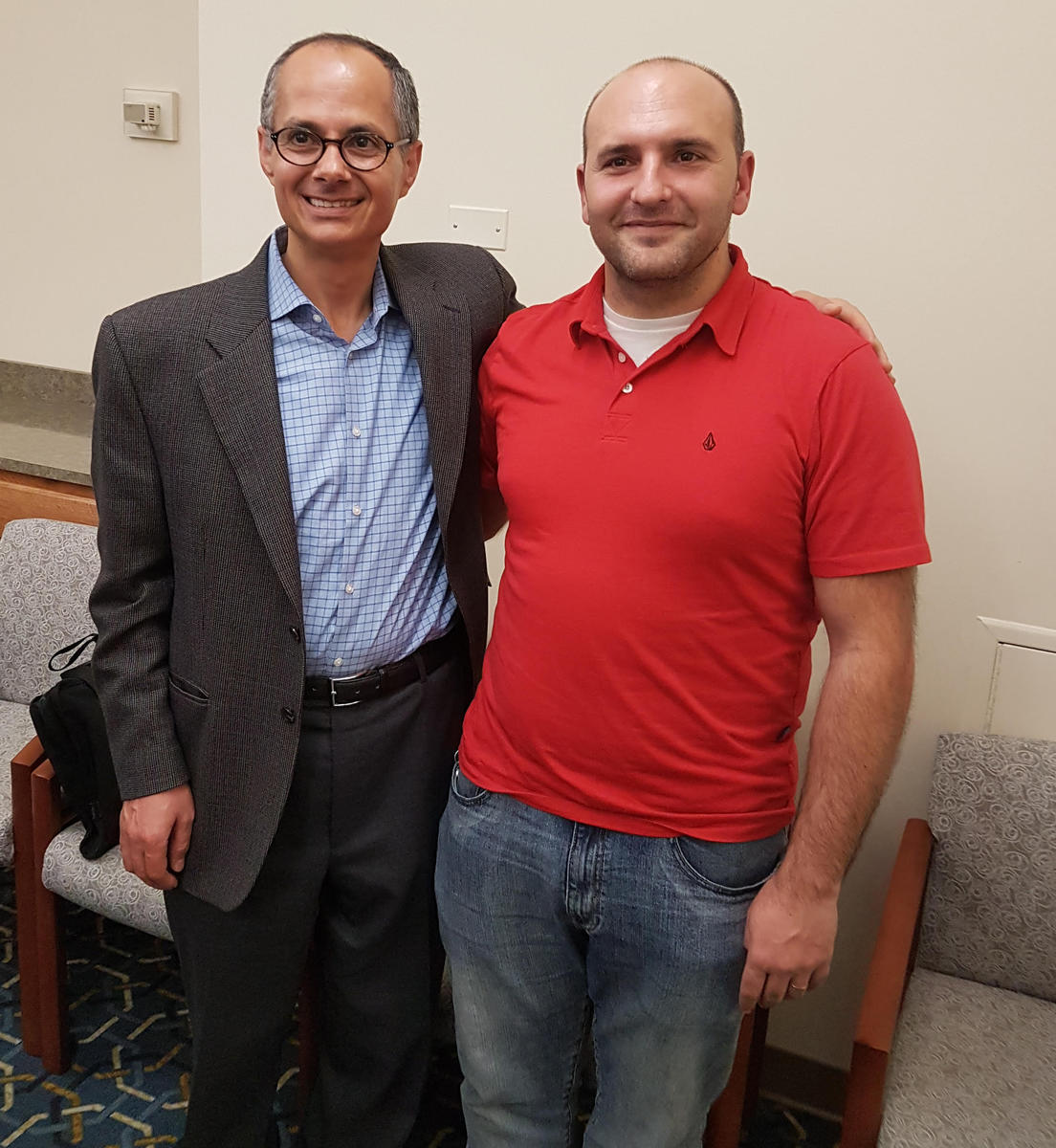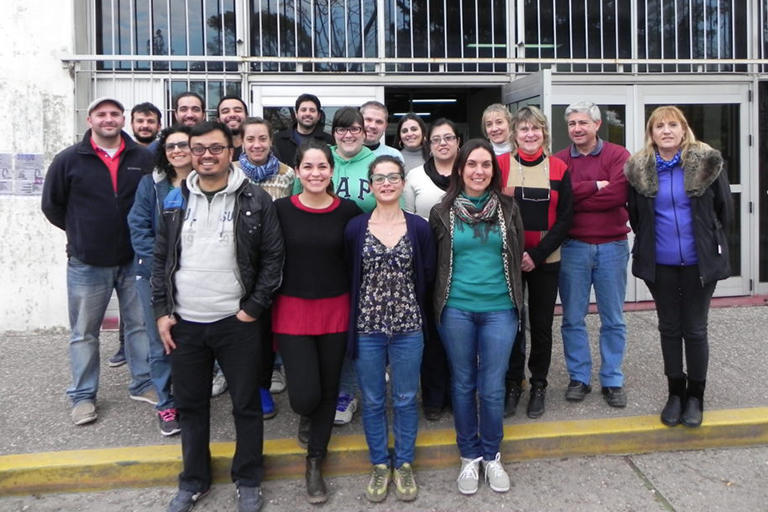Since its creation, our research group has utilized physical organic chemistry tools in order to study reaction mechanisms and their application toward the synthesis of novel structures and supramolecular arrays. More recently, we began to undertake the challenge of design, synthesis and application of nanostructured materials.
SuNaLab (Supramolecular Chemistry and Nanostructured Systems) has a multicultural work environment for learning and development. We have established close collaborative relationshipsfor undergraduate teaching activities at the Chemistry College in the Universidad Nacional de Córdoba. This constant source of enthusiastic emerging scholars is blended with the experience of recognized researchers at world-class institutions, such as Instituto de Tecnología Química (ITQ) y el Instituto de Ciencia de los Materiales (ICMM), Spain, the Centre for Supramolecular Chemistry Research, University of Cape Town (UCT) and Rhodes University, South Africa, the National Institute for Materials Science (NIMS), Japan, and the University of California, Berkeley (UCB), USA, among others. The uniquely international working environment together with research carried out at interface of materials science and supramolecular chemistry, is the ideal atmosphere for highly motivated students wishing to work in challenging research projects.
A portion of the SuNaLab, focuses its research activities on the synthesis and properties of nanostructured materials inspired by supramolecular arrays and bioarchitectures. Specifically, we develop new synthetic strategies to prepare highly functionalized reticular materials, including, but not limited to, metal-organic frameworks (MOFs) and covalent organic frameworks (COFs), to solve high impact challenges in fields like selective detection and capture of contaminants, toxin degradation, catalysis, and gas separation.
For further information concerning the research topics being explored by the SuNaLab team, please visit their website.


